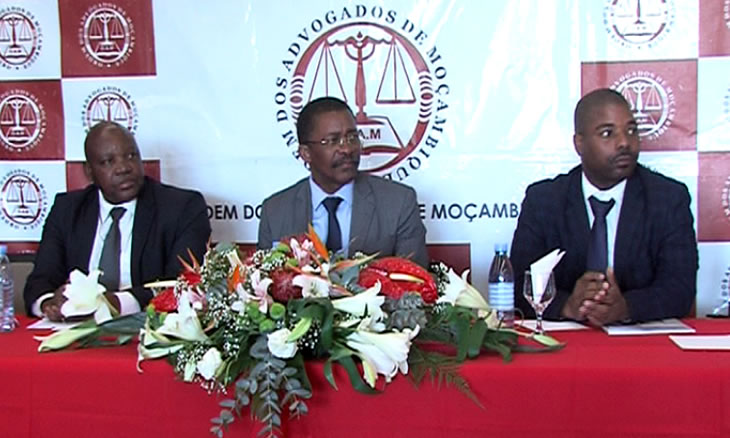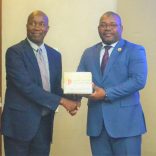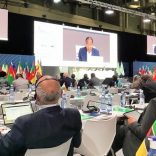WOAH donates 100,000 rabies vaccines to Mozambique
Human rights situation in Mozambique “still leaves a lot to be desired” – Bar Association

Photo: O País
The Mozambican Bar Association (OAM) yesterday said it felt that the human rights situation in the country “still leaves a lot to be desired,” pointing to prison overcrowding as one of the main problems.
The second report of the Mozambican Bar Association (OAM) on Human Rights in the country arises, according to OAM chairman Flávio Menete, from the Bar’s statutory duty to act as observer of respect for the fundamental rights of citizens.
The report concludes that, in almost all respects, human rights issues have not improved or have not improved significantly. These range from access to law and justice, penitentiary establishments, political-military conflict, hidden debts, economic and social rights, rights of vulnerable groups, access to information, community rights and domestic violence.
Many problems remain with regard to access to justice, such as insufficient infrastructures and inadequate human resources.
“Access to the courts comprises various dimensions of physical access and economic access. Physical access implies the responsibility of the State to create courts or instances of conflict resolution close to the citizen. Within the dimension of physical access, the component concerning the number of magistrates is included,” reads the statement quoting the president of the Supreme Court, interviewed in 2017, as saying that: “In 2016, the judicial magistrature had 336 judges across the country, which corresponds to a ratio of 1.3 per 100,000 inhabitants.”
Apropos of this, the head of the Bar Association said: “As you can imagine, there is no magistrate who can solve the problem of 100,000 inhabitants annually.” The figure automatically implies a high number of pending court cases.
Another important focus of the report is prison overcrowding. The report says that in 2016 there were 18,000 prisoners in the Mozambican jails, with about 6,000 in pre-trial detention. This number is quite high, and in his comments on the subject Menete says that one of the causes was “a tendency to favour pre-trial detention without the capacity to solve the problem, and there are even cases preventive detention that should not even exist”.
Menete notes that there inmates who are being illegally held because the time limit for their detention has already passed, whereupon they often end up being released by the courts.
As possible measures to mitigate the problems, the chairman of the Bar Association advocates that preventive detention should be only used when “there is a need to guarantee the interests of the process”, associating this position with the government’s plans to build new penitentiary establishments.
The Bar Association report also notes that communities continue to be victims of multinationals in the extractive industry, especially as far as resettlement is concerned.
“The rules of resettlement are not met, and sometimes there is violence against members of communities in areas where this activity occurs.”
The report, which refers to the year of 2016, argues that the military conflict worsened the human rights situation and led to acts of persecution and murder as well as the destruction of social infrastructure, worsening an already poor human rights situation, especially the right to health. “You cannot talk about the right to life as distinct from the right to health,” where the situation is not good either, Menete says.
The Bar Association report however acknowledges that the Mozambican legal framework favours human rights, while recommending that the country works in line with the various international instruments on the matter that it has already adopted, transforming them into decrees and ordinary law.
Government reaction
Minister of Justice, Constitutional and Religious Affairs Joaquim Veríssimo, who attended the document release ceremony in Maputo on Tuesday, said that the government was aware of the prevailing human rights challenges, but stressed that there are many advances in this area resulting from the implementation of the government’s five-year plan.
As an example, Veríssimo pointed to the Institute of Judiciary Assistance and the transformations it is undergoing to assure the right of citizens to justice. The Minister of Justice also said that education was essential in raising citizens’ awareness of the rights which accompany citizenship. Finally, he highlighted ongoing investment in infrastructure as contributing to guaranteeing the social rights of citizens.












Leave a Reply
Be the First to Comment!
You must be logged in to post a comment.
You must be logged in to post a comment.